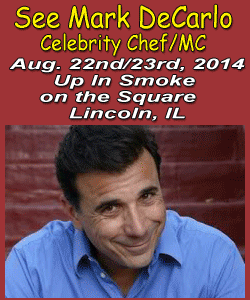|
 Gunshots hit the vehicle of former cricket star and opposition
politician Imran Khan as he led his supporters through the eastern
city of Gujranwala. Residents brandishing ruling-party posters
attacked his convoy, throwing shoes and stones. Khan was not
injured, his spokeswoman said. Gunshots hit the vehicle of former cricket star and opposition
politician Imran Khan as he led his supporters through the eastern
city of Gujranwala. Residents brandishing ruling-party posters
attacked his convoy, throwing shoes and stones. Khan was not
injured, his spokeswoman said.
Khan and populist cleric Tahir ul-Qadri are slowly leading separate
processions towards Islamabad where they plan to occupy main streets
until Prime Minister Nawaz Sharif resigns.
Security was tight in the capital and authorities had blocked
several main roads with shipping containers and barbed wire in a
effort to thwart the marches.
Riot police were out in force but hundreds of protesters began to
gather, banging drums, singing and dancing as they prepared to
welcome the their comrades approaching the city.
"We have come to save our country because of the call of our leader,
Imran Khan," said 36-year-old Ajaz Khan in central Islamabad. He was
speaking before the shots were fired at Khan.
"We will not leave from here until our leader tells us to go."

The protests have raised questions over stability at a time when the
nuclear-armed nation of 180 million is fighting an offensive against
Pakistani Taliban militants and the influence of anti-Western and
sectarian groups is growing.
In the latest violence, 10 militants were killed and 13 members of
the security forces were wounded in attacks on two air force bases
in the city Quetta late on Thursday, the third time since June
airports had been targeted.
Some members of Sharif's ruling party have suggested the protests
are secretly backed by elements in the powerful military, which has
had an uneasy relationship with Sharif.
How far Khan and Qadri succeed in destabilising the government is
likely to depend on the stance taken by a military, which has a long
history of mounting coups.
While few people think there will be a coup but many officials fear
the threat of unrest will increase the military's hold over the
government.
The military has been frustrated with the government, in particular
over the prosecution of former army chief and president Pervez
Musharraf for treason.
There was also disagreement between the government and the army on
how to handle the Pakistani Taliban with the army favouring military
action and the government holding out hope for peace talks.
[to top of second column] |

REFEREE?
The government is also struggling to overcome daily power shortages,
high unemployment, and spiralling crime - the legacy of decades of
corruption and neglect.
Anger over the economy means the protests appeal to many
disillusioned young Pakistanis.
Both protest leaders also command intense personal loyalty from
their followers. Khan is a famed former cricketer, known for his
charity work, who now heads the third largest legislative bloc in
the country.
Qadri, a cleric and political activist who usually lives in Canada,
controls a large network of schools and Islamic charities. His
followers say they intend to occupy Jinnah Avenue, Islamabad's main
thoroughfare leading to many embassies and government buildings.
"We will not go back until Sharif resigns," said Qadri's spokesman,
Shahid Mursaleen. "They killed our people, there is no way we can
make a deal with them."
Qadri has accused police of killing 22 of his supporters during
clashes in the eastern city of Lahore in June and this month. Police
confirmed 11 deaths.
About 2,000 of Qadri's supporters were also arrested this month,
police said.
Khan is protesting against alleged electoral irregularities in last
year's polls.
Most observers expect the military to play referee, to maintain
security but not support action to force Sharif out.

"Imran will not get from the army what he was expecting," said an
analyst close to the military.
"If there was any confusion earlier about whether the army would
help Imran or rescue him or topple the government, there should be
none now. There is no question of army intervention."
(Additional reporting by Katharine Houreld and Mehreen Zahra-Malik;
Writing by Katharine Houreld; Editing by Robert Birsel)
[© 2014 Thomson Reuters. All rights
reserved.] Copyright 2014 Reuters. All rights reserved. This material may not be published,
broadcast, rewritten or redistributed. |